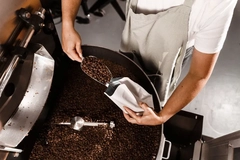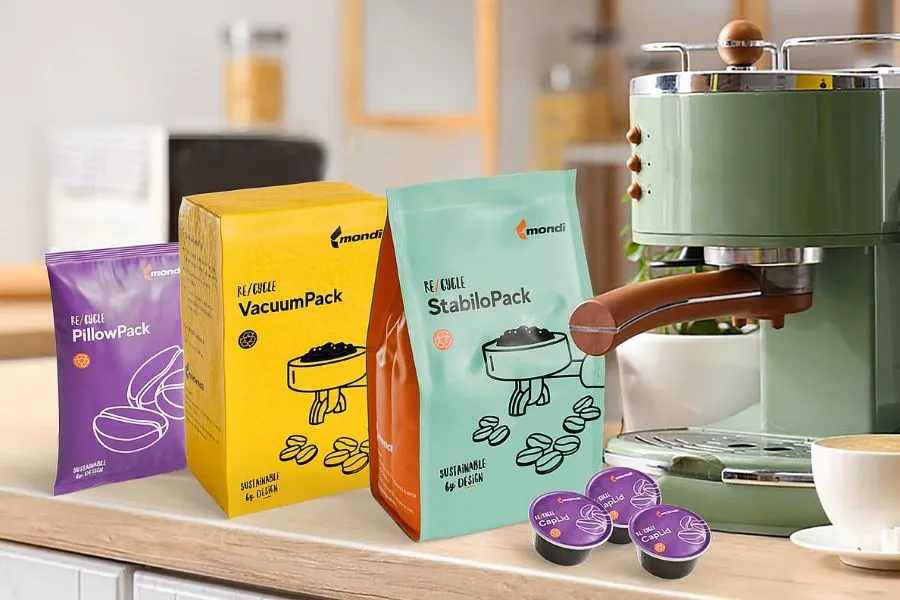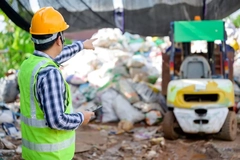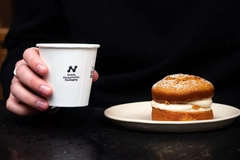HostMilano live: Mondi debuts lightweight coffee packaging to preserve freshness
Key takeaways
- Mondi introduces its re/cycle VentPack, a thin, PP-based coffee packaging solution saving up to 96% in plastic weight.
- The company showcases a variety of sustainable coffee packaging, including recyclable monomaterials and compostable alternatives.
- The packaging innovations align with EU regulations, with an emphasis on product protection for fresh coffee.

Mondi is presenting its latest coffee packaging concepts at the HostMilano trade fair from October 17 to 21. The re/cycle VentPack features a value pre-applied to the film, aiming to simplify the packaging process for customers.
Packaging Insights speaks to Wilbert Van de Corput, business development manager coffee, at Mondi Consumer Flexibles, about the company’s portfolio at HostMilano and the challenges of creating environmentally conscious coffee packaging.
“Thanks to its thin, PP-based construction, VentPack can save up to 96% in plastic weight compared to conventional button valves and is designed for recycling as a monomaterial PP packaging.”
Mondi’s portfolio includes primary and secondary packaging made from paper, plastic, and hybrid materials designed for recycling.
It features the monomaterial PP SoftPack, VacuumPack, and paper-based StickPacks and PodSachets, which have applications for ground coffee, whole beans, coffee pods, and capsules.
Keeping coffee fresh
Coffee is part of many people’s morning routine, and its packaging influences the quality of that ritual, says Van de Corput.
He explains: “Whether you purchase whole beans, ground coffee in a vacuum-sealed ‘brick,’ or single-serve filter capsules, the packaging plays a crucial role in blocking out air and moisture, maintaining freshness, and expressing the brand’s identity.”
When sealed properly, roasted coffee can last up to a year. Van de Corput notes that high-barrier packaging is essential to help the coffee remain fresh and flavorful. Moreover, flexographic and rotogravure printing options can ensure attractive aesthetics and strong shelf impact.
 Mondi’s portfolio includes primary and secondary packaging made from paper, plastic, and hybrid materials (Image Credit: Mondi).“It is a sensitive product that can easily oxidize, which leads to a change in its organoleptic properties when exposed to oxygen,” he adds.
Mondi’s portfolio includes primary and secondary packaging made from paper, plastic, and hybrid materials (Image Credit: Mondi).“It is a sensitive product that can easily oxidize, which leads to a change in its organoleptic properties when exposed to oxygen,” he adds.
Recycle-ready solutions
Van de Corput says that flexible packaging made from many polymers is being replaced by recycle-ready packaging, but finding sustainable structures that can align with the needs of coffee packaging is challenging.
Mondi supports the coffee sector with solutions for various packaging formats that combine sustainability, product protection, and process reliability. Recyclable monomaterials and compostable paper capsules preserve aroma and quality thanks to high barrier properties and open pathways to circularity,” he says.
One example presented at HostMilano is the Ad/Vantage TrayWrap, a paper alternative to plastic in secondary packaging. According to Mondi, it can save over 75% in CO2 emissions and eliminate the shrink oven.
Meeting regulations
Many of Mondi’s solutions are direct innovations in response to the EU’s Packaging and Packaging Waste Regulation. Its FlexStudio aims to keep customers in direct contact with developments.
Van de Corput notes that a coffee company’s dedication to sustainability impacts consumer choices.
“The recyclability of packaging and materials is essential to keep valuable raw materials in circulation. For the type of plastic packaging into which coffee packaging also falls, the minimum recycled content required is 10% by 2030 and 25% by 2040.”










